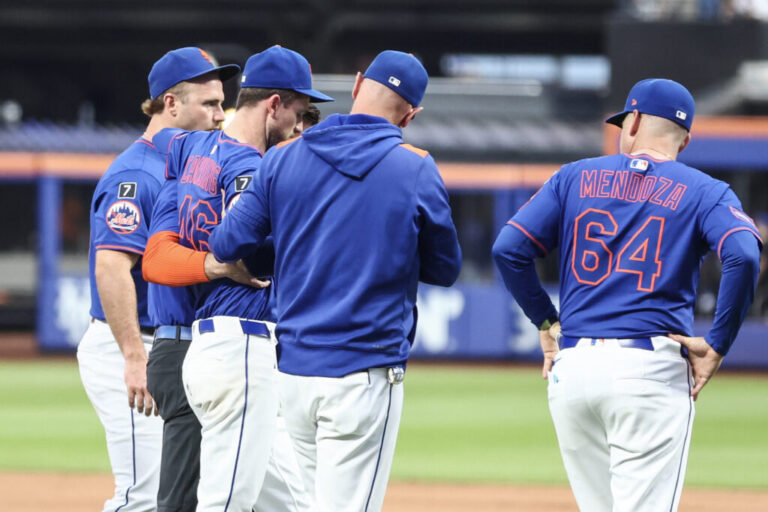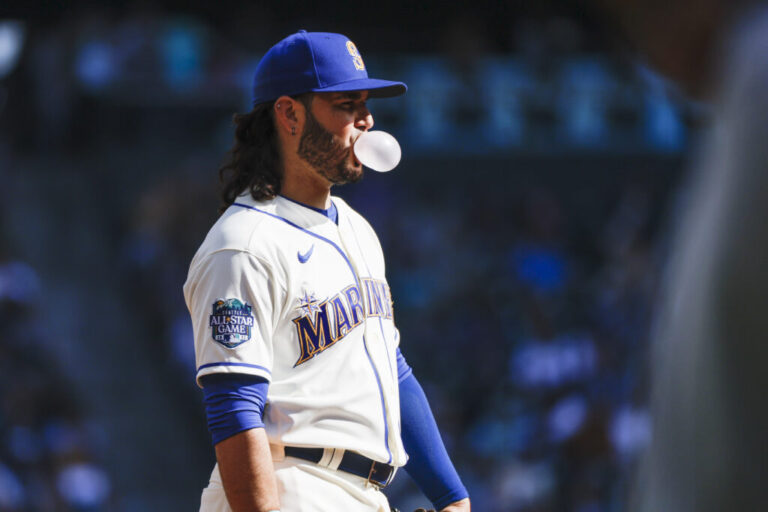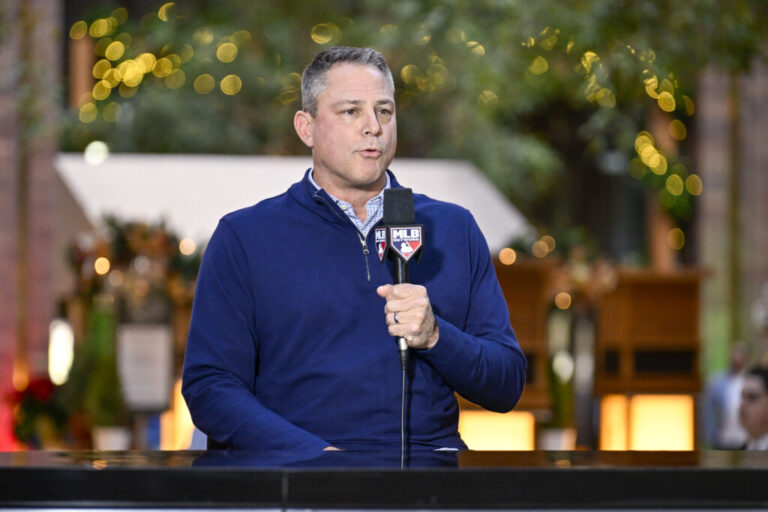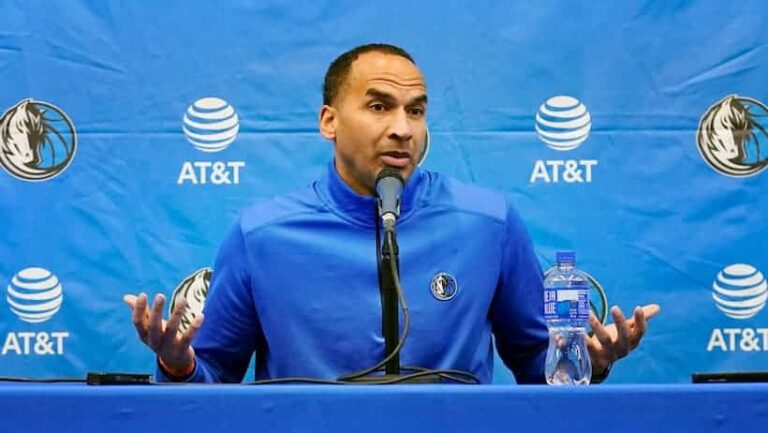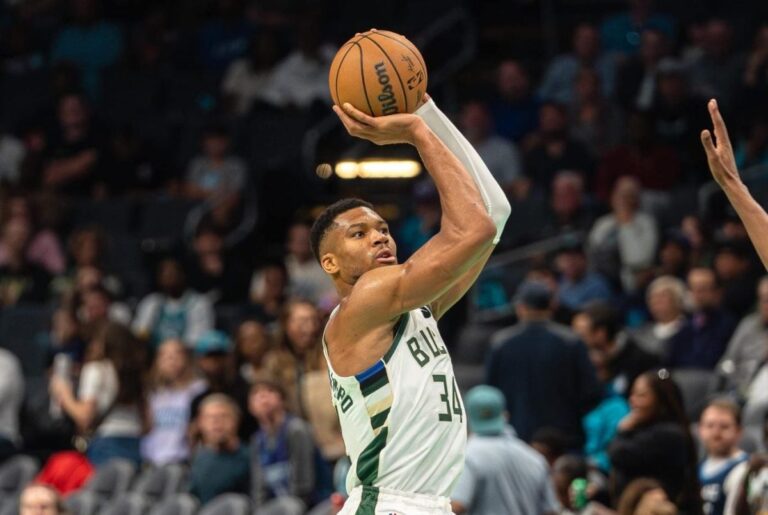

It’s always nice when something works out perfectly, right away. At the trade deadline, the Dodgers insinuated themselves into a three-way deal with the White Sox and Cardinals, acquiring Michael Kopech and Tommy Edman in exchange for infielder Miguel Vargas and a smattering of minor leaguers. Edman, who hadn’t played an inning all year to that point because of a wrist injury, was of little use to the Cardinals and zero use to the White Sox, so Los Angeles was able to acquire him on the cheap.
The wrist healed; the former Stanford standout debuted in late August, posted a 98 wRC+ in 37 regular-season games, then played every inning of the Dodgers’ successful World Series run. He started games at both center field and shortstop, hit .328/.354/.508 with five stolen bases in 16 appearances, and went home with NLCS MVP honors.
So you’d understand why both sides would want to run it back. On Friday night, the Dodgers announced that they and the 29-year-old Edman had agreed to a contract extension. This five-year, $72 million deal supersedes the final year of Edman’s previous two-year contract, worth $9.5 million. Should this partnership continue to bear fruit through the end of the decade, the Dodgers have a $13 million club option for 2030 as well.
I don’t think anyone could argue that Edman is a useful and valuable player for the Dodgers, but the news of his new contract has generated a bit of a stir. Edman, a former sixth-round pick who stands all of 5-foot-10, makes his living by shuffling from position to position; he’s started 50 or more regular-season games at second base, shortstop, third base, right field, and center field in his career. He’s good everywhere but not otherworldly anywhere.
Offensively, Edman is merely decent. His career high in home runs is 13. His career slash line, already modest, is inflated by a bonkers half-season he put up as a rookie; take that away and he’s a career .257/.312/.394 hitter.
This is a utilityman. A grinder. A dirty-uniform guy. As much as the Dodgers clearly love Edman, the man was born to be a St. Louis Cardinal, to fill the scuffed and gritty shoes of David Eckstein and Ryan Theriot and Frankie Frisch.
That guy’s getting $72 million? That’s starting pitcher money, slugger money, not utility infielder money! The Dodgers are out of control, they must be stopped!
Well, it’s not quite that simple. First of all, this is a Dodgers contract, so the sticker value is lower because of (holds hands out for audience call-and-response like a preacher or a game-show host)… deferred money! Our man Jon Becker, whom I trust on these issues because he’s comfortable using phrases like “depreciation rate,” says the real-world value of Edman’s contract is actually a hair under $13.1 million per year, rather than the $14.4 million that you get when you divide 72 by five.
On the other hand, the Dodgers already owed Edman $9.5 million for 2024, so they’re extending their commitment to Edman by four years and roughly $56.6 million, factoring in deferrals. So you could think of this as a four-year extension at $14.15 million per.
Admittedly, that’s quite a bit of freight for a complementary player.
Either way, it’s less money per year than the Dodgers gave Chris Taylor in his four-year, $60 million contract that started in 2022. (How’s that working out for the Dodgers right now? Don’t worry about it!) In the five years before his extension kicked in, Taylor had posted 14.6 WAR in 623 games. Over the past five seasons, Edman has produced 12.4 WAR in 541 games. Taylor was a better hitter then than Edman is now, but Edman is a better defender; both produced, to within a tenth of a win, 3.7 WAR per 162 games played.
And if you want to talk about the superutilityman archetype, remember that Ben Zobrist signed a four-year, $56 million contract with the Cubs after the 2015 season. Now, Zobrist was twice as good as Taylor or Edman. When he signed with Chicago, his 8.7 WAR campaign with the Rays was more than half a decade in the past, but even so, his WAR-per-162 games figure over the previous five seasons was 5.2, not 3.7.
But he was also 35 years old, not 29, and the most expensive contract in baseball history was only 70% as valuable as the current record contract; the record AAV has gone up roughly the same amount in that time. In 2016, the first luxury tax barrier was $189 million, or roughly 78% of the $241 million mark that’ll set off alarms in 2025.
Oh yeah, the luxury tax. Or the “Competitive Balance Tax” to you squares and accountants out there.
I think a lot of the sticker shock over the Edman deal has little to do with the going rate for a utility player. This might look like a lot of money — I mean, let’s be real, it is a lot of money — but it’s a fair price for a guy who can play multiple premium defensive positions and put up somewhere in the neighborhood of 3 WAR per season.
And I suspect that if Edman had signed this contract during the Winter Meetings, or in spring training, or the day after the World Series, nobody would’ve cared. But it’s the second-biggest contract of the offseason, and the only splashier deal that’s been disbursed so far was another Dodgers signing: Blake Snell. And apart from these two deals, the only other thing to talk about has been the Angels filling out the crew for their annual voyage of the damned.
So now we’re in a situation where, if you want to be sensational, the Dodgers have spent a quarter billion dollars in a week on two guys who aren’t even super-duper-mega-stars, while the Yankees, Mets, Braves, Phillies, Padres, Rangers, Astros, and… I don’t know what other contenders or big payroll teams you want to add in here. The Blue Jays? The Cubs? The Diamondbacks? Doesn’t matter. Either way, while the Dodgers are going out and giving buy-Ferraris-for-your-grandkids money to a utility infielder, all those other teams have combined for a meager handful of minor league signings and fliers on bullpen arms.
Well, the Dodgers are still on track to come in under their payroll from last season. For that matter, they’re on track to come in under the Mets’ payroll from last season. It might not stay that way, especially if Juan Soto develops a hankering for tacos and hiking, but the Dodgers aren’t currently doing anything unprecedented in terms of spending.
And this is a good place for them to spend, because Edman fills a position of need. “What position is that?” I hear you asking. Exactly. Whatever the position, Edman can fill it.
Manager Dave Roberts isn’t exactly the inveterate lineup fidgeter he was a few years ago, but he does like to play matchups more than most. And the Dodgers’ front office has built a roster that enables him to do so. Prioritizing flexibility is what made Taylor so valuable to the Dodgers in the first place, and led to multiple rounds of pelvic buddy-bumping with Enrique Hernández. That’s how you get Mookie Betts at second base, Max Muncy at second base, Trea Turner at second base, Betts at shortstop, Gavin Lux in center field… the list goes on.
This, even though the presence of Shohei Ohtani and Freddie Freeman makes this continual matchup-seeking and injury-proofing and lineup-reshuffling difficult. The Dodgers aren’t the only team with a full-time DH and a franchise first baseman. You don’t have to look too far down the National League pecking order to find Phillies and Braves teams with the same issue. But while you wouldn’t want to have Kyle Schwarber or Marcell Ozuna in the outfield regularly, I am reasonably confident that both of them own a mitt and could use it in a game if need be. I am less confident about Ohtani in that respect.
Absent those two positions to park an all-bat, no-glove platoon player, the Dodgers have to get creative. Edman gives them the ability to split a platoon across positions. He’s a switch-hitter, and while he has a significant platoon split — 124 career wRC+ against lefties, 92 wRC+ against righties — he’s playable against any type of pitcher. And because he can hack it at six positions (he’s barely played left field in his career, but I assume, based on his ability to play center and right field, that he could move to the other corner without suffering debilitating vertigo), he could caddy for, theoretically, a left-handed outfielder and a right-handed shortstop.
Again, this is well-covered ground for Roberts and the Dodgers. Remember the pseudo-platoon of Betts and Jason Heyward? Edman provides another opportunity to do more of that.
There’s a sense out there that it’s vulgar or ignoble to be as rich as the Dodgers are. That it’s more honorable somehow to play on hard mode, with an $80 million payroll, because it forces the GM and the manager to be creative. Poppycock, I say. You can have both. Being rich allowed the Dodgers to extend Edman, and keeping Edman allows them to be more creative.
